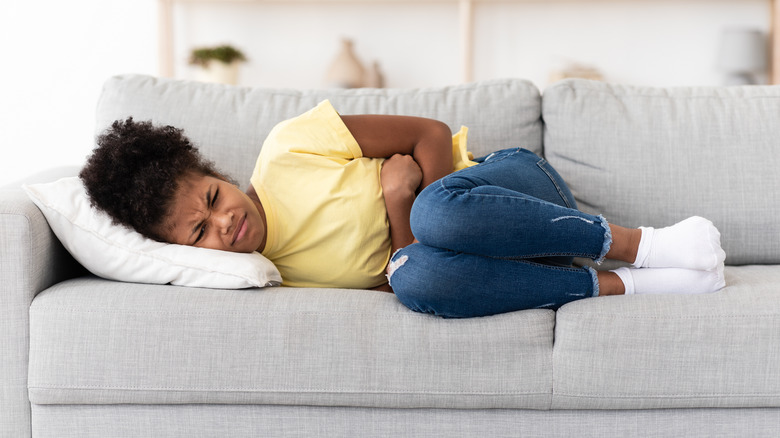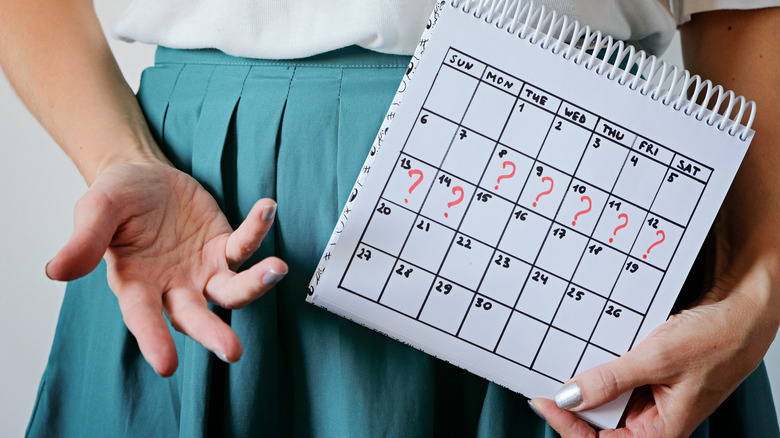How Do You Know If You Have An Irregular Period?
When it comes to menstrual cycles, it can be hard to know what's considered normal. Between how long a period lasts to how heavy the flow is, knowing what's regular for your body can help you better understand your reproductive health — but how do you know if you have an irregular period?
A menstrual cycle begins on the first day of a period (via Cleveland Clinic). Hormones trigger the following phases of a cycle, rising after a period as the body prepares for ovulation when they reach their peak. If pregnancy doesn't occur after ovulation, hormone levels drop, and the uterine lining sheds, resulting in a period. The entire cycle is usually about 28 days long, and periods last an average of three to five days. Symptoms of menstruation can include moodiness, lower abdomen and back cramps, bloating, breast tenderness, food cravings, acne, and trouble sleeping.
However, there's a big range of what's considered regular, so your period might look different than what's average.
Signs of an irregular period
While you've probably heard that your cycle will be exactly 28 days, this is actually a myth, according to Verywell Family. This is just an average, so it may differ for you. In fact, data from period tracking apps shows that a more accurate average cycle length is 29.3 days. If your cycle is less than 21 days or more than 35 days, or if it falls in this normal range but differs by seven to nine days each cycle, it could also be a sign of irregularity.
If your period is too light or absent, it may be considered irregular and have something to do with being underweight or overweight. Spotting between periods is also not normal, and is usually attributed to hormonal imbalances or fibroids in the reproductive tract.
If bleeding soaks through at least one tampon or pad every hour for multiple hours in a row, it's called menorrhagia, or excessive bleeding. While this is common and affects up to one-third of people who get a period, it's not normal. It could be a sign of a fertility issue, fibroids, polyps, or endometriosis. Another common issue that you shouldn't ignore is dysmenorrhea, or severe period pain.
If you usually have regular periods and only experience an irregular one every once in a while, it may not be cause for concern. This could be due to external factors like increased stress, excessive exercise, or illness.


